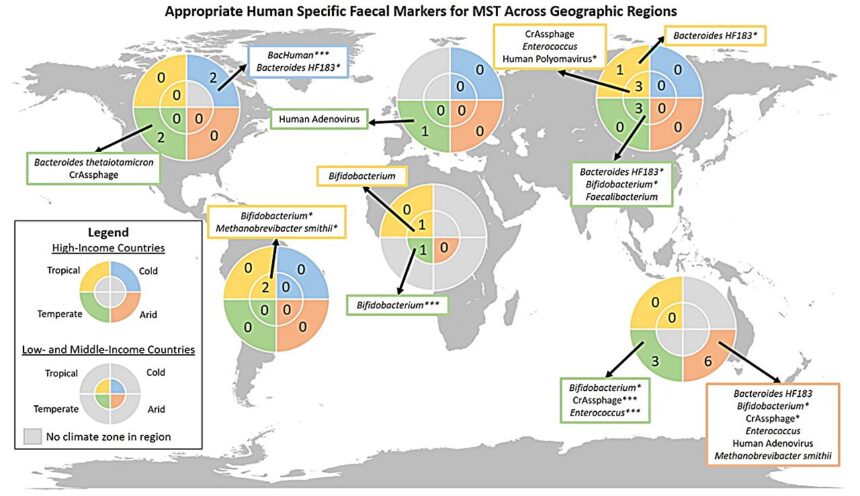The detection of environmental fecal contamination is crucial in preventing life-threatening diarrheal diseases that claim 1.2 million lives annually. However, a recent study published in Critical Reviews in Environmental Science and Technology has revealed significant flaws in the microbial source tracking (MST) methods used to detect such contamination.
The research, led by Ph.D. candidate Leah Barrett from Monash University’s RISE program, highlights the limitations of universal MST methods. These methods, while considered globally applicable, often fail to accurately identify contamination sources due to regional variations in factors such as diet, climate, and sanitation practices. This discrepancy underscores the need for standardized and regionally adapted MST markers to improve the accuracy of detecting fecal contamination.
Barrett emphasizes the urgent need for a global effort to standardize MST methods in order to prevent outbreaks of diarrheal diseases. The current lack of tailored solutions hampers public health interventions and limits the effectiveness of preventing deaths worldwide. By developing and validating region-specific MST markers, health systems can better combat diarrheal diseases, particularly in vulnerable regions where these illnesses are most prevalent.
The study calls for a shift towards regionally adapted MST solutions to harness the full potential of this tool in preventing and controlling diarrheal diseases. Without these efforts, the ability to detect and address contamination sources remains underutilized, leaving populations at risk of deadly outbreaks.
For more information on this research, readers can refer to the study titled “Beyond borders: A systematic review and meta-analysis of human-specific faecal markers across geographical settings” published in Critical Reviews in Environmental Science and Technology. The DOI for the study is 10.1080/10643389.2025.2455031.
In conclusion, the study underscores the importance of improving MST methods to accurately detect and address fecal contamination, ultimately reducing the global burden of diarrheal diseases. By standardizing and regionalizing these methods, health systems can enhance their ability to prevent outbreaks and save lives.








